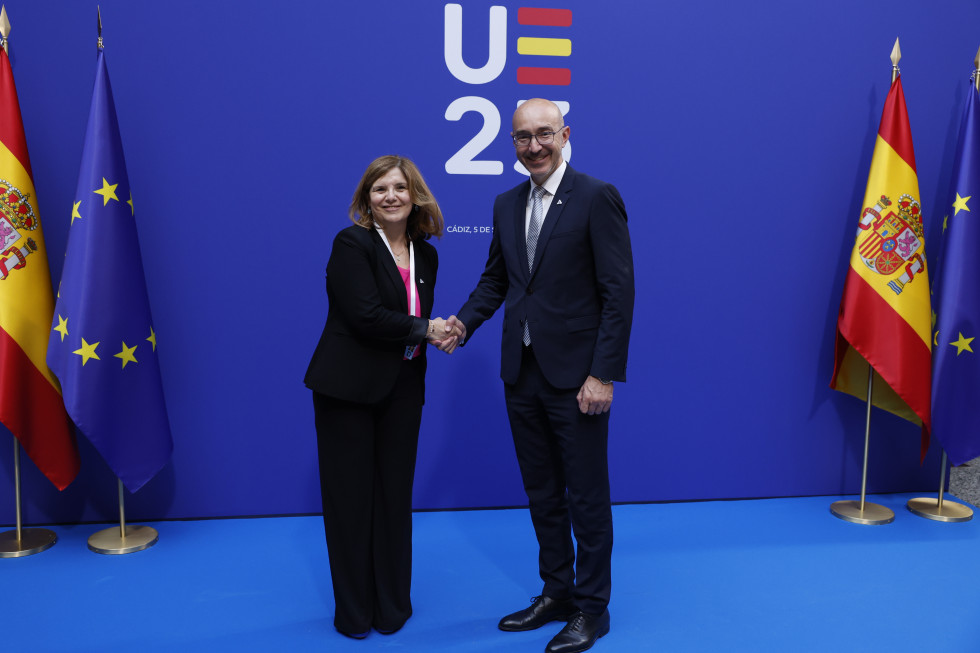EU development ministers on sustainable development goals and development bank reform

Director-General Edvin Skrt and Spanish State Secretary for International Cooperation Pilar Cancela | Author Pool PEUE/Juanjo Martín
The ministers unanimously called for an accelerated implementation of the 2030 Agenda for Sustainable Development and its objectives, where progress has been too slow and in some areas even regressive. A meeting with Deputy Secretary-General of the United Nations (UN) Amina Mohammed was held two weeks before the upcoming SDG Summit and the ministerial meeting on the Summit of the Future.
Director-General Skrt therefore stressed that the time is right for renewed commitment and decisive action based on global solidarity and strengthened partnerships with developing countries. Climate and water security, as well as the Humanitarian-Development-Peace Nexus, are key to the implementation of the 2030 Agenda and will be a priority during Slovenia's non-permanent membership of the UN Security Council. The Director-General also stressed the importance of gender equality and women's empowerment for a successful implementation of the 2030 Agenda in all areas.
In the context of the discussion on the triple transition – green, digital and social – the ministers touched upon the challenges of strengthening the social dimension, which must go hand in hand with the green and digital transitions. The EU's contribution to the social dimension of the 2030 Agenda is of great importance for progress towards all SDGs, especially in addressing inequalities and vulnerability.
Director-General Skrt welcomed the Spanish Presidency's initiative for the triple transition with an included social dimension. He also advocated the initiative, presented by Commissioner for International Partnerships Jutta Urpilainen, on a new Inequality Marker. Slovenia is willing to participate in this initiative from an early stage, as it can serve as a good tool for identifying and preventing inequalities at the global level.
Over a working lunch, ministers discussed the reform of the international financial architecture, which will be key to meeting the global commitments and closing the financial gap. Private sector investment also plays an important role in the Global Gateway strategy, where Slovenia is committed to the involvement of small and medium-sized enterprises.

